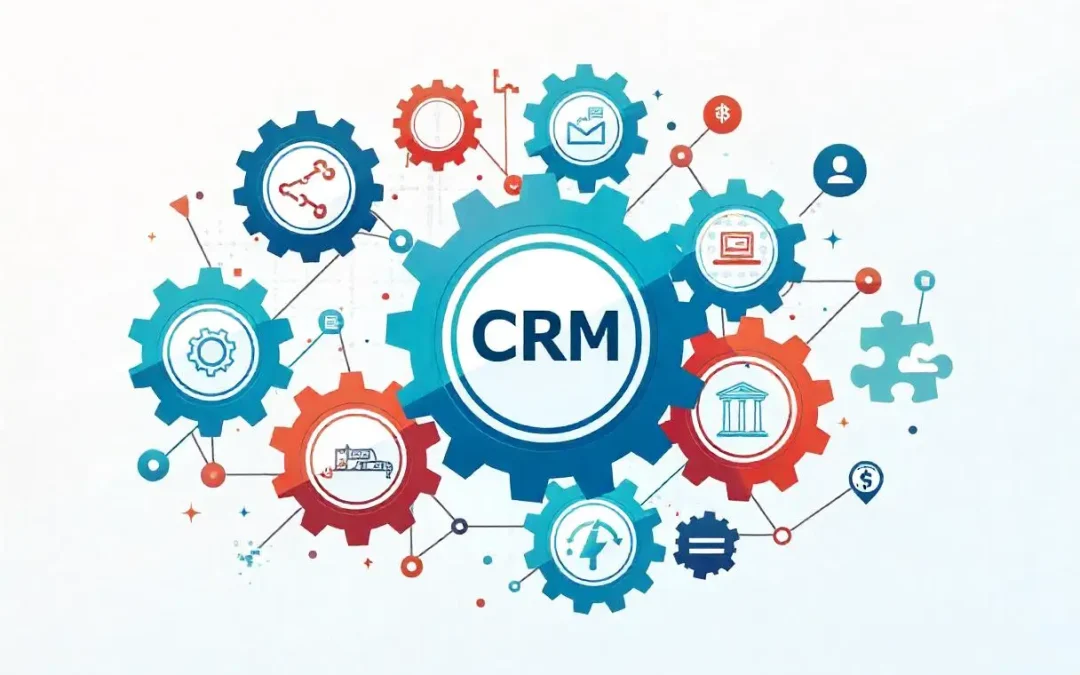In today’s competitive business landscape, effective customer relationship management (CRM) is crucial for success. Integrated CRM systems offer businesses a powerful solution to streamline operations, enhance customer interactions, and drive growth. This article will delve into the concept of integrated CRM, its benefits, key features, and how it can transform your business operations. Whether you are a small business owner or part of a larger corporation, understanding integrated CRM will enable you to make informed decisions that foster better customer relationships.
What is Integrated CRM?
Integrated CRM refers to a customer relationship management system that combines various functions and processes into a unified platform. This integration allows businesses to manage all customer interactions, sales processes, and data analytics in one place.
Key Components of Integrated CRM
- Sales Automation
- Streamlining the sales process to increase efficiency and productivity.
- Customer Service Management
- Enhancing the customer support experience by providing timely assistance and tracking inquiries.
- Marketing Automation
- Automating marketing tasks such as email campaigns, social media posts, and lead generation.
- Data Analytics
- Leveraging data to gain insights into customer behavior, sales trends, and marketing effectiveness.
Benefits of Integrated CRM
1. Improved Customer Experience
- An integrated CRM system allows for a holistic view of customer interactions, enabling personalized communication and better service.
2. Enhanced Collaboration
- Teams can collaborate more effectively as all relevant data is accessible from one platform, reducing silos within organizations.
3. Increased Efficiency
- Automation of repetitive tasks frees up valuable time for employees to focus on more strategic initiatives.
4. Better Data Management
- Centralizing customer data helps maintain accurate records and reduce redundancy, leading to more informed decision-making.
5. Enhanced Reporting and Analytics
- Integrated CRM systems provide powerful analytics tools that help businesses track performance and identify improvement areas.
Key Features of Integrated CRM
1. 360-Degree Customer View
- Provides a comprehensive profile for each customer, including past interactions, purchase history, and preferences.
2. Customizable Dashboards
- Allows users to tailor their dashboards to display the most relevant metrics and KPIs.
3. Integration with Other Tools
- Seamlessly integrates with other software solutions such as email platforms, accounting software, and marketing tools.
4. Mobile Access
- Ensures that teams can access the CRM system on-the-go, enhancing productivity and responsiveness.
5. Multi-Channel Communication
- Supports various communication channels, including email, social media, phone calls, and live chat, to engage customers wherever they are.
Implementing Integrated CRM: Best Practices
1. Define Clear Goals
- Establish what you want to achieve with your CRM system. Whether it’s improving customer service or increasing sales, having clear goals will guide your implementation strategy.
2. Involve Key Stakeholders
- Include team members from various departments (marketing, sales, customer service) in the planning process to ensure the system meets everyone’s needs.
3. Choose the Right CRM Solution
- Evaluate different CRM platforms based on your organizational requirements, budget, and scalability options.
4. Train Your Team
- Provide comprehensive training for staff to familiarize them with the CRM system’s features and functionalities.
5. Monitor and Analyze Performance
- Regularly review CRM usage and performance metrics to identify areas for improvement and ensure alignment with business goals.
Case Studies: Successful Integration of CRM
Case Study 1: Company A
Company A, a small retail business, implemented an integrated CRM system that combined sales, marketing, and customer service functions. As a result, they:
- Improved customer retention rates by 30% through personalized communication.
- Increased sales by 20% within six months of implementation.
Case Study 2: Company B
Company B, a mid-sized software company, utilized an integrated CRM to streamline product support. They experienced:
- A 40% reduction in response times for customer inquiries.
- Enhanced collaboration among support and sales teams, leading to better upsell opportunities.
Data and Statistics
- According to research from Grand View Research, the global CRM market is expected to reach $114.4 billion by 2027.
- A study by Nucleus Research found that businesses using integrated CRM systems see an average return on investment of $8.71 for every dollar spent .
External Resources
For further insights on integrated CRM systems, check out:
- Salesforce – Leading CRM provider offering a variety of tools and resources.
- HubSpot – Comprehensive marketing, sales, and customer service software.
Conclusion
Integrated CRM systems are transforming how businesses interact with their customers, making them invaluable tools for growth and efficiency. By understanding the benefits, features, and best practices for implementation, organizations can enhance their customer relationships, streamline operations, and drive overall success.
Call to Action
Are you ready to upgrade your business’s customer relationship management? Explore integrated CRM solutions today and share your thoughts or experiences in the comments below. Don’t forget to check out our other articles for more insights into maximizing your business potential!
Closing
Thank you for reading this comprehensive guide on integrated CRM. We hope you found valuable information to help you in your CRM journey. Be sure to visit us again for more updates and resources on business strategies and tools!


